climatechange
Latest

Trump removes climate change from national security strategy
It's no secret that the Trump administration has a sceptical view of all things science-based -- earlier this week it banned the CDC from using that very term -- and now, in the face of mountains of evidence to the contrary, it's taken climate change out of the US national security strategy (NSS) claiming it's not a threat. And in an unprecedented move, Trump broke with normal protocol to launch the new NSS with a speech.

France gives 'Make our Planet Great Again' grants to US scientists
France has backed up statements that it's willing to reward America's climate researchers now that the US has backed out of the Paris global warming accord. President Emmanuel Macron handed out 13 of 18 "Make our Planet Great Again" grants worth millions of euros to US-based scientists. "You will now settle in, develop projects, enrich French, European research, because we've decided to give even bigger resources and to fully recognize what you are doing," Macron said in a speech at Paris startup hub Station F.

Unearthing oxygen-starved bacteria might worsen climate change
A recently-released federal report has finally credited humans with causing climate change, but we might have more to worry about than fossil fuel emissions. While we knew bacteria in earth's soil releases almost a third of the carbon dioxide that reaches the atmosphere every year, a portion of this population has gone overlooked. A new study has found that bacteria which don't require oxygen to produce CO2 occur in more areas than previously thought. And while its production is far lower than normal (aerobic) processes, that rate will likely increase if the surrounding soil was exposed to air or when the global climate warms up.
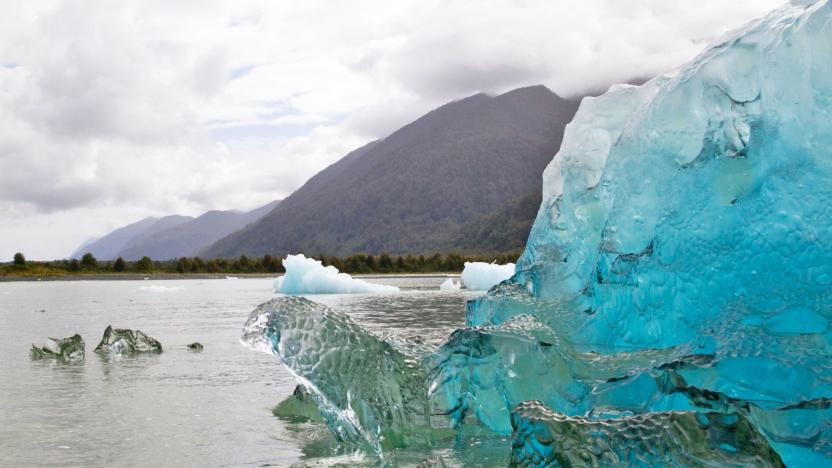
NASA can pinpoint glaciers that might flood coastal cities
It's safe to say that melting glaciers and ice sheets are bad things: they raise ocean levels and risk flooding low-lying coastal areas. But which of these icy bodies do you have to worry about in your area? NASA might help. It recently developed a technique that can determine which glaciers and sheets pose a threat to a given area. It's complex, but it could make a big difference for coastal cities that may need to react to global warming.

Treaty ending use of planet-warming HFCs takes effect in 2019
The treaty phasing out the use of Earth-warming hydrofluorocarbons now has an official start date. Sweden has become the 20th country to ratify the Kigali Amendment, invoking a clause that has the measure taking effect on January 1st, 2019. From then on, wealthier countries (less fortunate nations have until 2024 or 2028) must cut back on use of the greenhouse gas in everything from air conditioning to refrigerators. Ideally, this pushes companies to use and develop eco-friendly coolants.
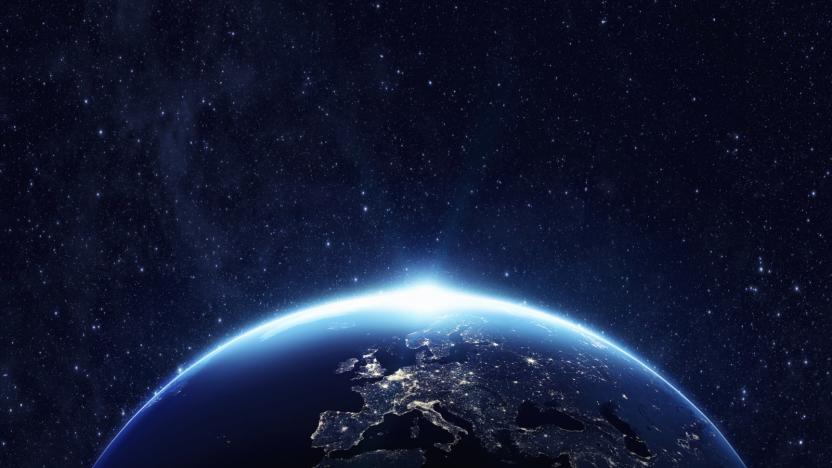
Scientists issue a dire warning about climate change (again)
Back in 1992, a group of scientists from around the world told us in no uncertain terms that we were ruining the planet Earth. Because of human actions such as deforestation, pollution and ozone depletion, we were on a dire course that would lead to a planet unable to support life. As you can imagine, things haven't improved much. This week, over 15,000 scientists from 184 countries joined together to issue a second notice for the 25th anniversary of their original warning. Their message? Things have gotten much, much worse, and soon it will be too late to do anything about it.
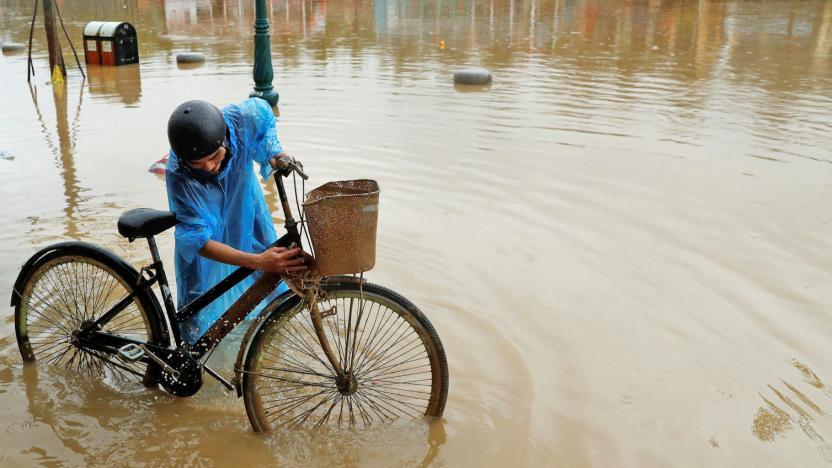
Deutsche Bank is using climate change data to predict investment risk
The Trump administration might still be arguing that climate change isn't real (and if it is, it certainly isn't caused by humans), but Deutsche Bank wants to be prepared for the financial hit that might result. The bank's asset management group is incorporating climate change data to determine the biggest risks to investment portfolios.
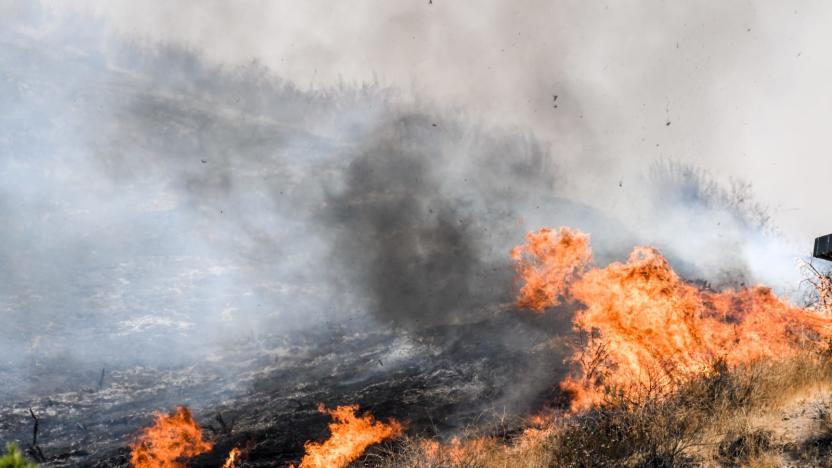
Federal report says humans are the cause of climate change
Today, over a dozen federal agencies released the Climate Science Special Report, which is a product of the National Climate Assessment -- a congressionally mandated review that takes place every four years. In it, hundreds of scientists from dozens of government agencies and academic institutions present evidence that supports the existence of a human-caused warming planet and all of the consequences that come with it. "This assessment concludes, based on extensive evidence, that it is extremely likely that human activities, especially emissions of greenhouse gases, are the dominant cause of the observed warming since the mid-20th century," the report stated. "For the warming over the last century, there is no convincing alternative explanation supported by the extent of the observational evidence."
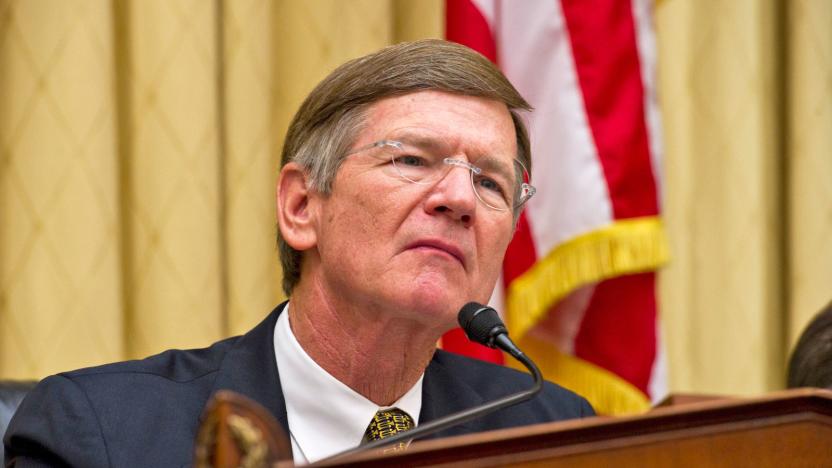
Climate change-denying House science chairman is retiring
Lamar Smith, the chairman of the US House of Representatives' Committee on Science, Space and Technology, has announced that he'll retire when his term ends next year. The Texas representative, an avid climate change denier, has been a controversial and, to many, an unwelcome head of the committee. During his tenure, he has published multiple opinion pieces on climate change, including some that claim it isn't a reality and others that state it's real but beneficial.
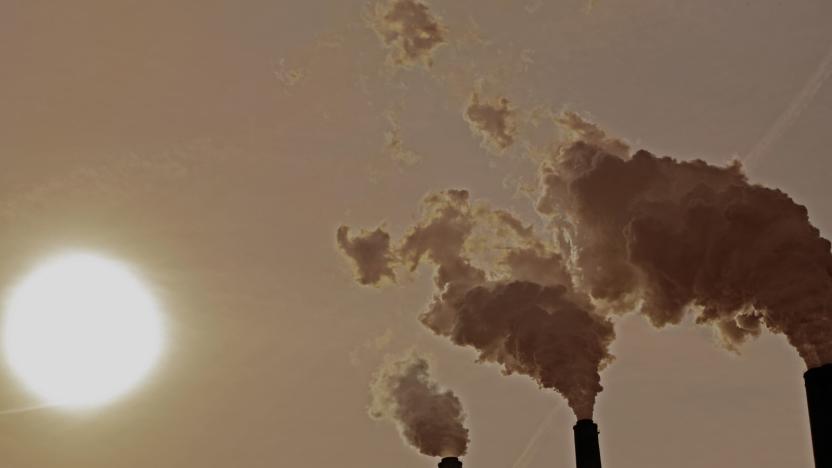
Scientists can't explain a 'worrying' rise in methane levels
The amount of CO2 in the atmosphere reached a record high in 2016, according to the World Meteorological Organization (WMO). Thanks to a combination of human activities and the El Nino weather event, last year's increase was 50% higher than the yearly average from the past decade, driving CO2 to a level that's not been seen for 800,000 years. Average levels in 2016 reached 403.3 parts per million, up from 400 parts per million in 2015.
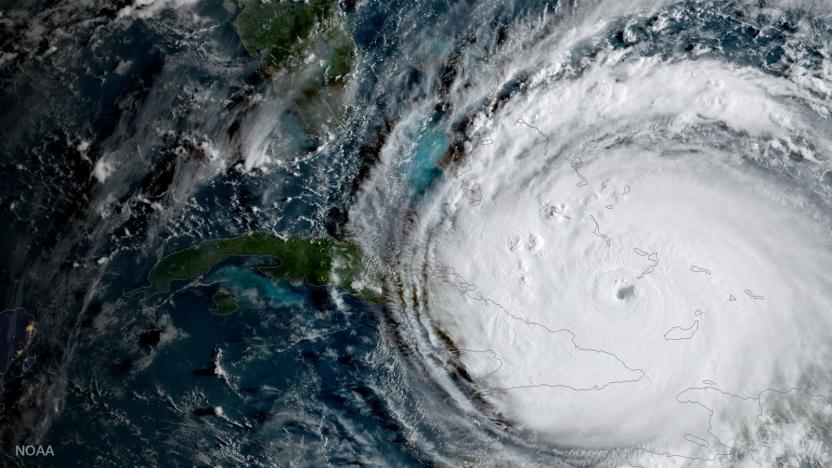
France and China will study ocean-based climate change next year
France and China, both key leaders of the Paris Climate Accord now that the US is leaving, have unveiled a new satellite to better predict storms and model climate change. The China-France Oceanography Satellite (CFOSAT) includes two radars that can study both wind strength and direction as well as the direction and wavelength of ocean waves. The latter can help scientists predict heat waves and other important climate data, according to recent studies.

EPA cancels scientists' climate change talk at the last minute
If there were any lingering doubts that the Environmental Protection Agency under Scott Pruitt would suppress any mention of climate change by its scientists, they've just been erased. The agency has cancelled an October 23rd climate change talk in Rhode Island mere hours before it was slated to take place. A spokesman didn't offer an explanation, but the three EPA scientists were expected to speak primarily about climate change and its effect on Narragansett Bay. The decision came from the EPA's Office of Public Affairs.
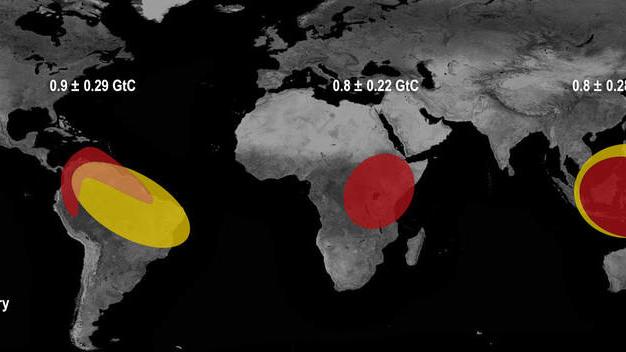
Heat and drought led to the largest recorded spike in carbon levels
In 2015 and 2016, NASA's Orbiting Carbon Observatory-2 (OCO-2) satellite recorded spikes in the levels of atmospheric carbon dioxide concentration. These were 50 percent larger than expected increases. Now, a series of new studies set to publish tomorrow in Science can tell us why. Eighty percent of the spike, or the equivalent of 2.5 gigatons of carbon, occurred because of natural processes due to drought and high temperatures in South America, Africa and Indonesia.

Trump's NASA nominee is willing to study climate change... on Mars
Good news: NASA's administrator nominee is fine with studying climate change! Just not Earth's climate change. In answers to a Senate questionnaire, Rep. Jim Bridenstine says it's important to understand why Mars changed so dramatically, losing its magnetic field and oceans to become the barren world it is today. If we know more about the Red Planet, he argues, we could "inform our understanding of Earth." There's a degree of truth to this, but history and Bridenstine's actions suggest it could be about diverting attention away from climate change issues on our homeworld.
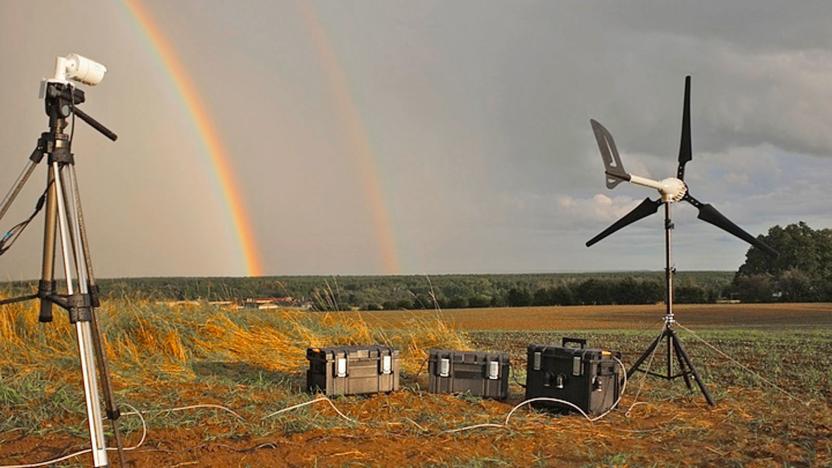
Wind energy mines digital cash to support climate research
Climate change is frequently described as a vicious cycle that depletes the very resources needed to fight it. In the case of Julian Oliver's latest project, however, it could almost be described as virtuous. His Harvest project uses a 700W wind turbine to power a PC mining cryptocurrency (specifically, Zcash) that directly funds climate change research. In other words: the more the symptoms of climate change manifest themselves, the more money goes toward fighting that change. It was commissioned as a piece of art, but it's a very practical design that could find plenty of uses in the real world.
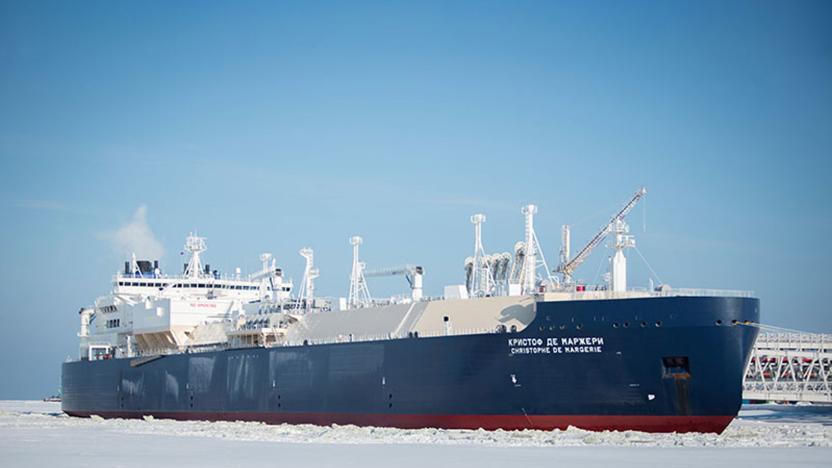
Tanker's speedy Arctic crossing is bad news for the planet
Normally, smashing a transportation record is something to celebrate. This time, however, it's not necessarily worth cheering. Sovcomflot's liquefied natural gas (LNG) tanker Christophe de Margerie has become the first merchant ship to cross the Northern Sea Route without an icebreaker clearing its path. The vessel, which can plow through ice up to 6.9 feet thick all by itself, completed the icy part of a trip from Norway to South Korea in a record-setting 6.5 days by keeping up speeds (an average of 14 knots) that would have been impractical with the usual escort. That's despite ice as thick as 3.9 feet. So what's so bad? Unfortunately, it's as much an indication of the effect of global warming as it is technological progress.
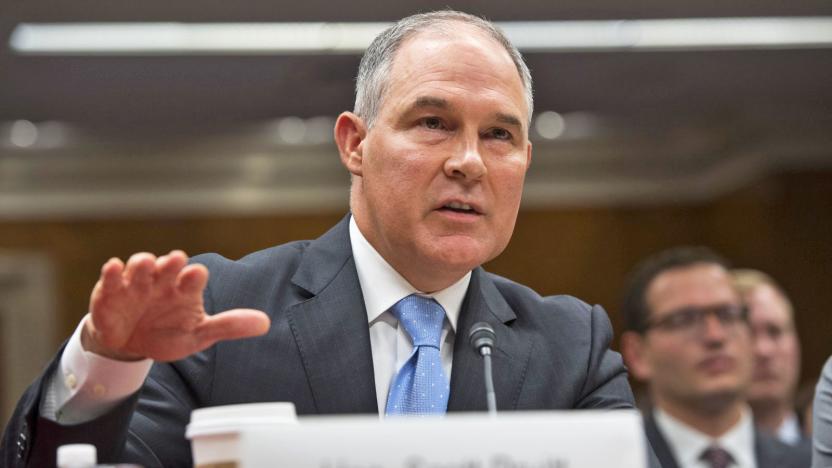
EPA will no longer sponsor the annual climate leadership awards
It's no secret that Scott Pruitt is a climate change skeptic, and the Environmental Protection Agency has been undoing Obama-era policies ever since he took office. The agency's latest move follows that trend: the EPA has announced that it's no longer sponsoring the 2018 Climate Leadership Awards program, which recognizes companies that take steps to reduce their greenhouse gas emissions and publicly report their progress. As a result, the awards program itself and the Climate Leadership Conference that usually goes with it have both been canceled for next year.

California continues to lead the US in renewable energy
In 2006, California adopted aggressive legislation aimed at reducing greenhouse gas emissions and boosting renewable energy production throughout the state. And since then, the state has been tracking its progress through its annual California Green Innovation Index report. The ninth report was just released this week and it shows that the state has made some major progress towards its renewable energy goals while hitting a bit of a bump in regards to its emission reductions.

Sea lions are getting sick from toxic algae blooms
Sea lions off of the coast of California are getting very sick and it's because of increased blooms of toxic algae. The algae release a chemical called domoic acid and when sea lions eat fish that feed on the algae, it causes seizures, gastrointestinal issues and can lead to brain damage. For many sea lions, the poisoning is a death sentence. "It's hard. It's really hard to watch these animals suffer, especially if there's not something we can do to stop these blooms from happening," Cara Field a veterinarian with the Marine Mammal Center told CBS News.
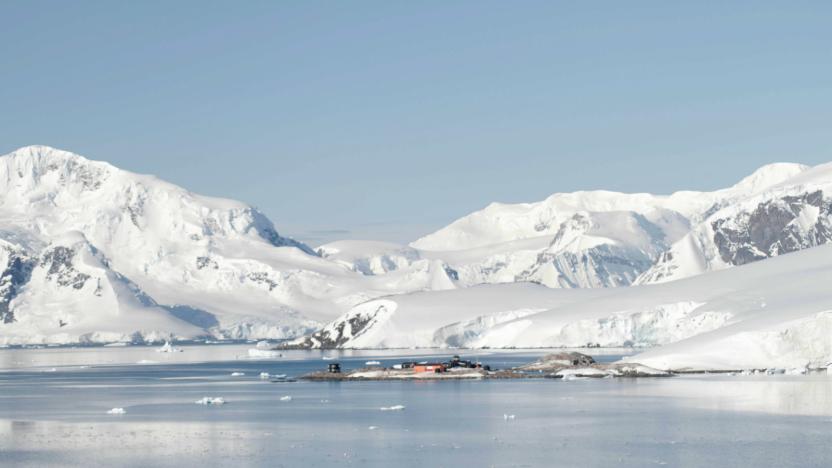
Study finds massive volcano range hidden in Antarctica's ice
A new study claims to have found a huge expanse of volcanoes lurking beneath the ice in Antarctica. Scientists unearthed a total of 91 previously undiscovered volcanoes -- some stretching up to 3,850 metres (12,600 feet) in height -- in the region known as the West Antarctic Rift System (WARS). The area is comparable to the densely concentrated volcanic regions in east Africa and North America, according to researchers from the University of Edinburgh.







